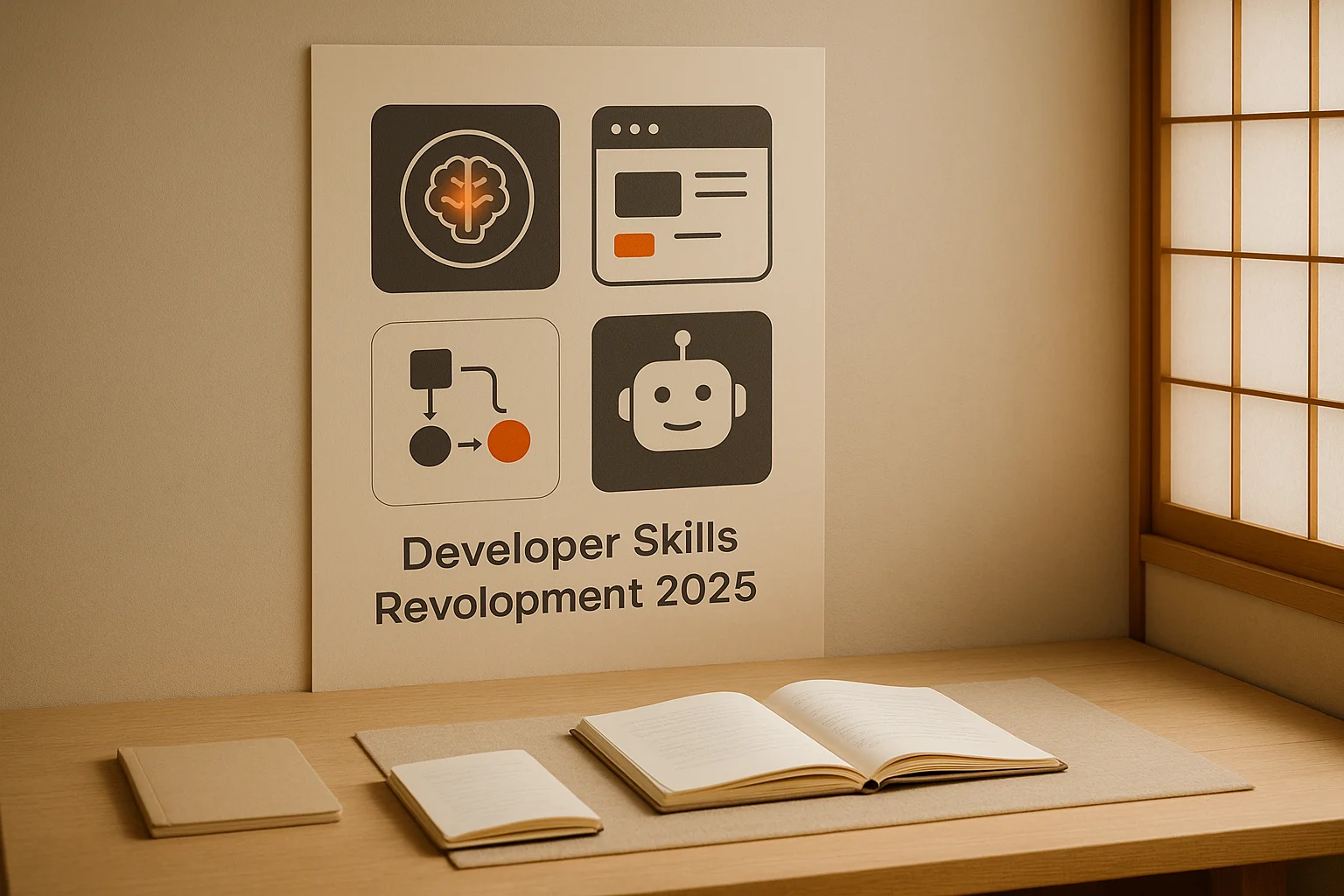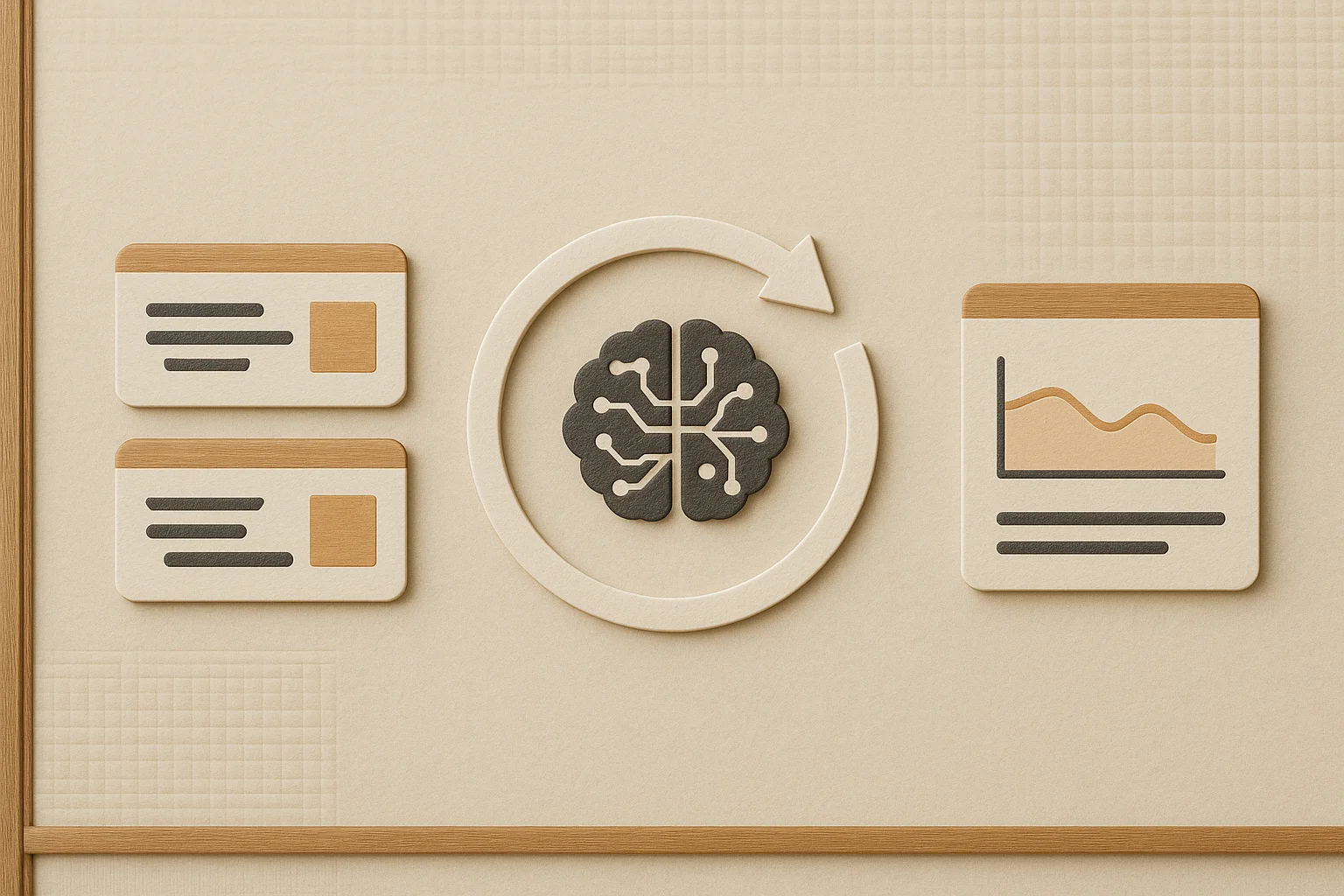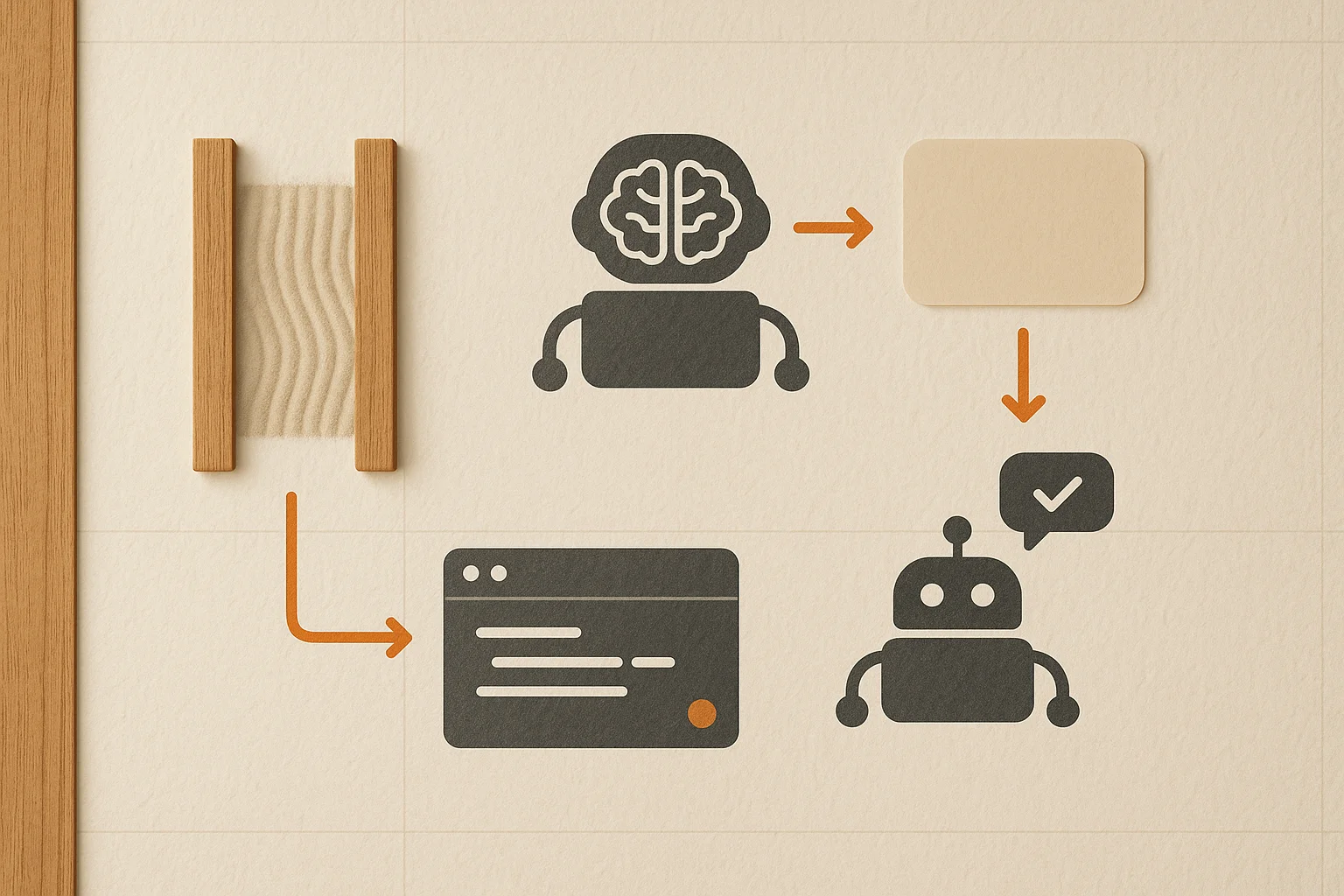Developer Skills and AI Development Resources for 2025

Developer skill formation is changing fast. AI pair programming, automated reviews, and platform engineering all shifted what great engineers do daily. Rather than curating endless course lists, 2025 leaders build targeted learning paths that combine project work, mentorship, and just-in-time resources. This article maps the core skills modern developers need and the resources that help teams stay sharp without burning out.
Use it alongside ourAI workflow transformation guideandcontract-first review checklistto connect learning with everyday delivery.
Key Takeaways
- AI fluency is now table stakes: Engineers must know how to evaluate LLM outputs, design prompts, and integrate AI safely into workflows.
- Systems thinking differentiates seniors: Data modeling, observability, and platform reliability skills outlast framework-of-the-month knowledge.
- Learning should live inside delivery: Pair resources with live projects, code reviews, and retros—not just quarterly workshops.
- Mental health and sustainability matter: Sustainable pace and psychological safety keep teams growing long term.
Skill domains to prioritize in 2025
We segment modern developer skills into six domains. Each domain requires deliberate practice and curated resources.
AI-assisted development
Prompt engineering, model selection, AI code review, and governance. Pair AI coding tools with guardrails from ourAI agent evaluation framework.
Architecture & data design
Designing modular systems, APIs, and schemas that scale. Reinforce concepts with architecture katas and code review checklists focused on contracts.
Security & privacy
Secure coding patterns, threat modeling, and compliance basics. Use real incidents (Log4Shell, recent npm attacks) for tabletop exercises and pair with SAST/SCA labs.
Observability & operations
Instrumentation, tracing, incident response, and performance tuning. Teach engineers to close the feedback loop between code changes and production impact.
Collaboration & leadership
Code review communication, cross-functional planning, and coaching. Embed these skills via pair reviews, RFC programs, and mentorship rotations.
Craft & productivity
Testing strategy, refactoring, and developer experience automation. Encourage continuous improvement by dedicating 10% engineering capacity to tooling.
Building a continuous learning engine
Replace ad-hoc training with an engine that blends microlearning, project-based practice, and coaching. Follow these steps:
- Assess reality: Use survey tools, skill matrices, and code review analytics to identify capability gaps. Propel's reviewer insights expose where teams struggle (e.g., API design feedback vs. testing rigor).
- Set quarterly themes: Choose one or two company-wide themes (e.g., "AI safety" or "observability as code") and align projects, brown bags, and office hours around them.
- Curate learning paths: Mix internal docs, live workshops, external courses, and sandbox exercises. Keep each path scoped to 4–6 weeks so momentum stays high.
- Pair with delivery: Anchor learning to active initiatives. If the theme is AI code review, run a Propel pilot and dedicate retros to sharing what worked.
- Measure & iterate: Track participation, certification progress, and impact on delivery metrics. Adjust the next quarter's paths accordingly.
Resource recommendations by format
There is no universal syllabus, but these resources repeatedly earn high marks from senior+ engineers. Always vet for relevance and avoid information overload.
Hands-on labs
- Microsoft Learn: Build AI solutions with Azure AI Studio— great for experimenting with prompt flows and responsible AI guardrails.
- Google Cloud Skills Boost: SRE Incident Management— an excellent incident response simulation.
Reading & reference
- Martin Fowler's architecture content— timeless writing on modular design and refactoring.
- AWS Well-Architected Framework— pragmatic checklists for cloud workloads.
Communities & cohorts
- Internal guilds or communities of practice aligned to core skill domains. Rotate facilitation so everyone contributes.
- External cohorts like O'Reilly Superstream or LeadDev discussion groups for leadership and communication growth.
Integrating learning into code review
Code review remains the most consistent learning venue. Turn every review into a coaching opportunity by:
- Using AI-generated summaries (Propel, GPT-5) to highlight decision points, then asking reviewers to explain the "why" behind feedback.
- Tagging reviews with skill domains—security, architecture, testing—and tracking which teams request the most help.
- Converting high-quality review threads into evergreen documentation or internal workshops.
- Scheduling reverse reviews where junior engineers critique senior-written PRs with guardrails.
Sustaining developer wellness
Deep skill growth requires sustainable pace. Build slack into planning, encourage planned focus time, and normalize unplugged rest. Pair technical coaching with psychological safety by training managers on feedback literacy and inclusive facilitation.
FAQ
How many hours per week should engineers spend learning?
High-performing orgs set aside 4–6 hours per engineer per sprint for deliberate practice. Make it visible on roadmaps, not hidden “spare time.”
How do we measure learning impact?
Track skill matrix progression, certification completion, and changes in review outcomes or incident frequency. Pair qualitative feedback with hard metrics like reduced rework.
What if developers feel overwhelmed by AI expectations?
Introduce AI in phases. Start with guided prompts, pair programming sessions, and a shared risk register. Highlight wins, but normalize raising concerns and opting out temporarily.
How do we align skill growth with business goals?
Tie learning paths to OKRs—if the business needs faster releases, emphasize deployment, QA, and observability skills. Review progress quarterly with product and engineering leadership.
Ready to build skills inside your delivery pipelines? Propel equips teams with actionable review insights, AI copilots, and feedback loops that turn every pull request into a lesson.
Level Up Your Team with Propel
Propel gives engineers AI-assisted reviews, learning-ready insights, and quality feedback loops that accelerate skill growth inside real shipping work.


